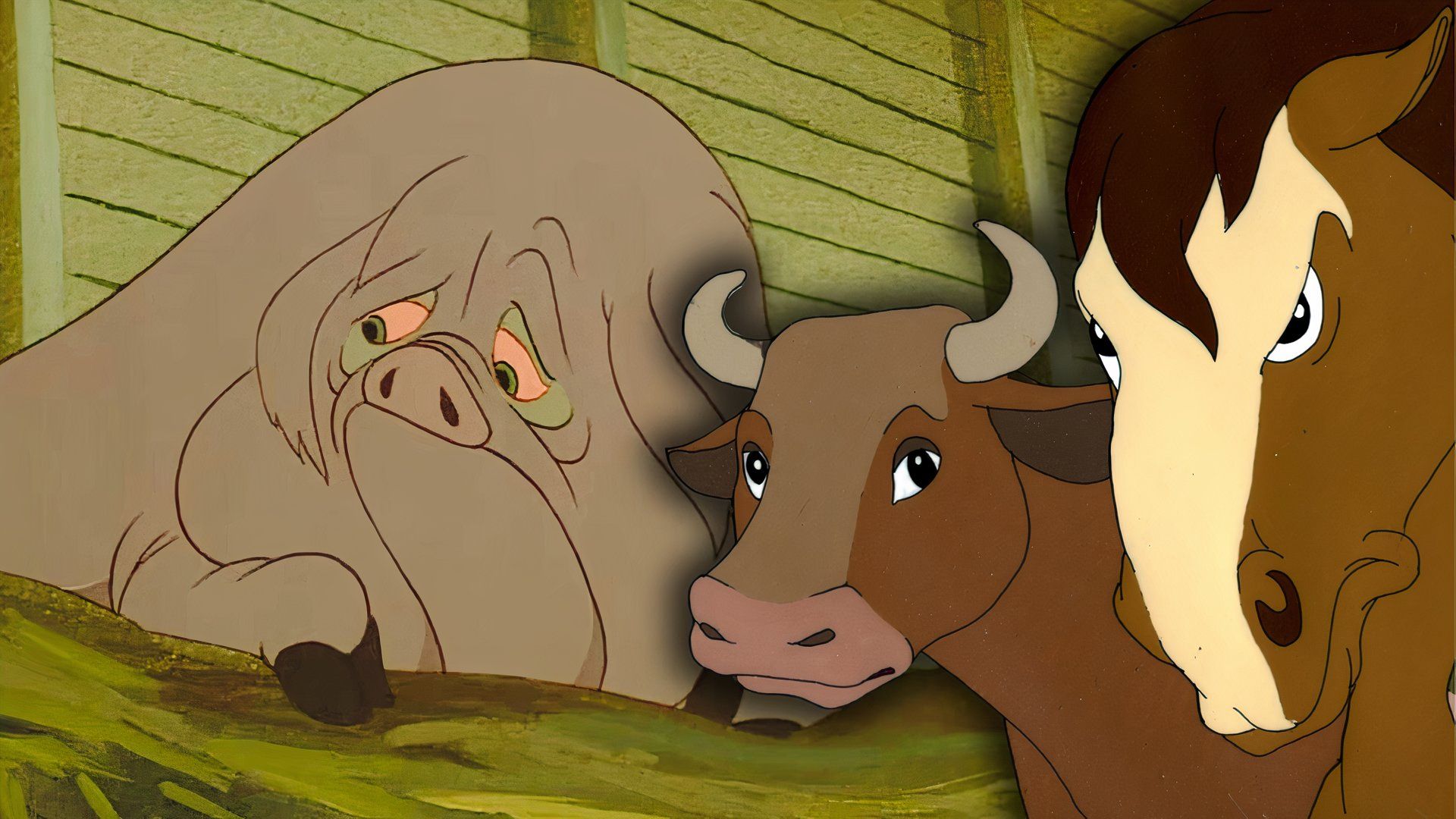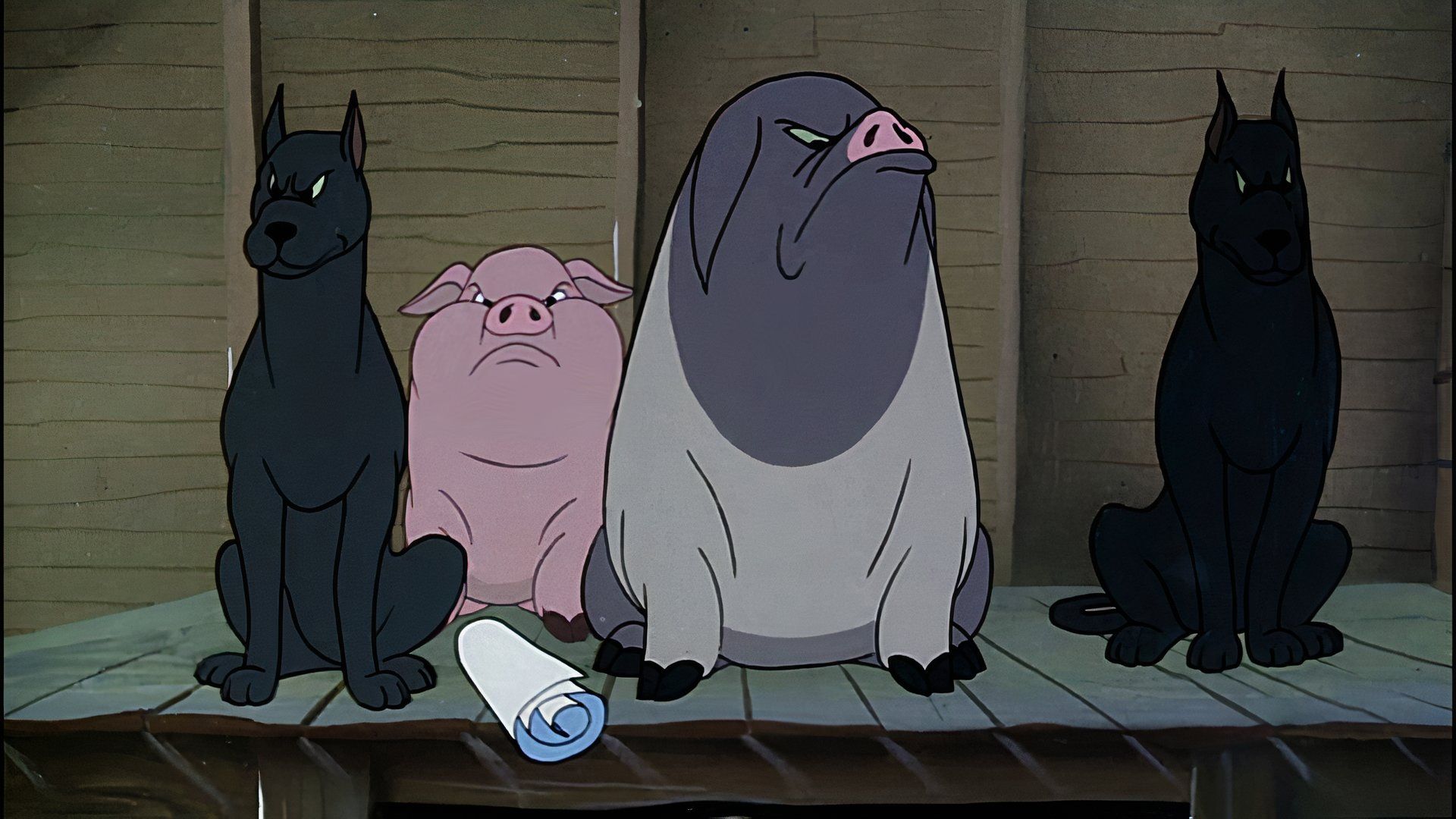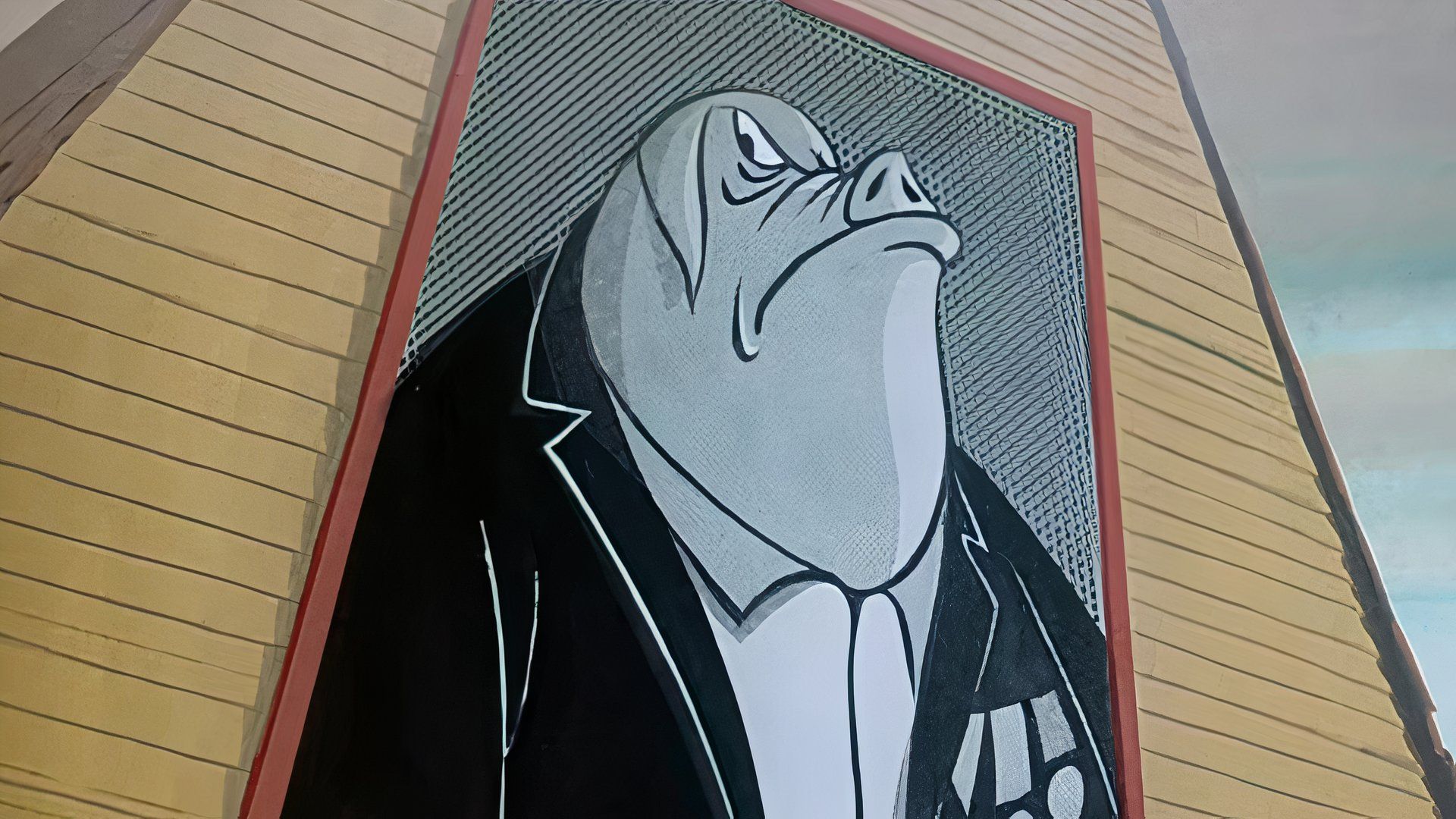
As a child, I remember reading “Animal Farm” in school and being utterly captivated by its profound allegory of political power and corruption. Having grown older and wiser (or so they say), I find myself even more impressed by this masterpiece.
Several films that can be classified as propaganda quickly spring to mind when discussing such topics. Among the earliest examples of movies used to convey political beliefs are those by Sergei Eisenstein. His film October: Ten Days That Shook The World depicted the overthrow of Czarist Russia, while Battleship Potemkin, now renowned for its exceptional use of montage and editing techniques, effectively replaced religious ideology with communism, complete with elements of martyrdom.
During the Cold War, the strained relationship between the Soviet Union and the United States gave rise to a unique form of propaganda and humorous critique. One notable manifestation of this was in the field of science fiction. The idea of Mars, constantly on the brink of invasion, became an excellent tool for satire, which Rod Sterling utilized in an episode of The Twilight Zone. Specifically, in “The Monsters Are Due on Maple Street”, he depicts a small town that succumbs to paranoia when an alien attack is feared following a teenager’s comic book tale.
1954 marked a time when fears of the so-called “red menace” were running high, and it was during this period that an animated adaptation of George Orwell’s Animal Farm was released. This adaptation would prove to be one of the most biting and rebellious examples of satire. In Orwell’s novel, a farm populated by animals serves as a metaphor for the continuous power struggle in Communist Russia. The ideology of Lenin is carried on by Leon Trotsky in the story, but it eventually becomes distorted into brutal oppression under the rule of Stalin and his close associate, Lavrentiy Beria. Interestingly, many people were unaware that this adaptation was secretly funded by the CIA and was one of several American-made products designed to stir dissatisfaction towards the Soviet Union.
Subversive Acts Behind the Scenes

The aspect of the CIA being involved in financing a film such as Animal Farm almost seems ludicrous when viewed through our modern sensibilities. The truth of the matter is that considering the lengths that the United States would go through to get a leg up on the spread of communism, it’s not at all surprising. Secret deals were fostered with members of the Axis, many of whom were responsible for some of the most heinous acts in history.
Shiro Ishii, head of Unit 731 in Japanese-occupied Manchuria where he conducted gruesome human experiments on living people, negotiated his freedom by providing data from those experiments and aided America in creating various biological weapons.
Any method that could outsmart the Soviet Union, whether in international politics or, similar to the narrative of Animal Farm, employ an entertaining medium to challenge the government, was eagerly embraced. The autobiography of bomber pilot Hans Ulrich Rudel, a known Nazi with unapologetic actions against the Soviet Union during wartime, would undergo extensive revisions and be targeted for American audiences due to its war-time depictions.
It’s quite ironic, reflecting on it as a dedicated fan, that the making of the animated adaptation of “Animal Farm” was largely orchestrated by people who had extensive experience in newsreels following Orwell’s demise. This production took place during a time when several prominent Hollywood writers and directors, including Dalton Trumbo, were blacklisted due to suspected communist associations. In a twist of fate, a tale warning against regime control and corruption was created under eerily similar circumstances.
Portraying the Roles of Power and Persecution

The greatest strength of Animal Farm is the way it portrays the rise to power in Communist Russia. This is done in a location that is symbolic of the revolution that resulted in the Bolsheviks seizing power in 1917. The farm, the well-established symbol of any agrarian society, was pivotal at the start of the Russian Revolution and, because of the collectivization process instituted under Stalin, would cause widespread grief and suffering. Animal Farm illustrates the imbalance of power and shameless grabbing by its main characters. With the majority of Russia’s population at the time being serfs and peasants who manned vast farms, it served as the perfect setting. Ultimately, the farm becomes its own separate country throughout the duration of Orwell’s story.
In any revolution, the philosophy that aims to build a society for the better often lays its foundation on paths lined with noble aspirations. The tale of “Animal Farm” commences with an elderly pig named Old Major, who symbolizes Karl Marx, the communist ideology’s founder. Concurrently, Vladimir Lenin, the revolutionary who would seize power from the Czarist regime, is portrayed by Farmer Jones, intoxicated by power and wielding oppressive rule over the animals. The demise of Old Major triggers a power struggle between two pigs, Snowball and Napoleon.
In the aftermath of Lenin’s death, the power struggle between Leon Trotsky and Josef Stalin mirrors the conflict between two leaders in George Orwell’s Animal Farm: Snowball and Napoleon. Idealistic and visionary, Snowball advocates for an agrarian utopia as per Old Major’s dreams before the revolution. Conversely, cunning Napoleon, who manipulates and controls a group of dogs reminiscent of the NKVD, seizes power in the Junta, ultimately driving Snowball into exile and eventual “hounding” (a term that echoes Trotsky’s assassination while in exile).
Under Napoleon’s iron grip, the farm transforms from a harmonious workers’ haven into a tyrannical regime characterized by severity and suppression. With the help of a character similar to Lavrentiy Beria, Stalin’s notorious chief of the NKVD, Napoleon and his cronies establish absolute power. Some of the darkest aspects of Stalin’s rule are portrayed in “Animal Farm”, such as the sham trials designed to eliminate dissenters and opponents, and the forced collectivization process.
In various parts of the Soviet Union, farms handed over their harvested produce to the government for distribution among the populace, leading to the establishment of collective farming. However, this system resulted in widespread famine and loss of life among the people. George Orwell’s “Animal Farm” symbolically portrays this perversion of ideals, as those in power exploited the labor of others while amassing wealth for themselves. Essentially, Napoleon and his followers turned out to be the very oppressive forces that the revolution aimed to replace.
“All Animals Are Equal, But Some Are More Equal Than Others”

As a movie buff, I’d say: The insights gleaned from “Animal Farm” transcend the storyline shown on-screen. Delving into its production history reveals that art, in all its forms, can be wielded subtly to criticize any system of power. What may initially appear as masterful satire could actually have been conceived with malicious intent to propagate a specific ideology. The fact that George Orwell’s work was bought for this purpose serves as a chilling reminder of the “red scare” era and the lengths governments will go to manipulate public opinion.
Regardless of any initial motivations behind the CIA’s funding of “Animal Farm,” its artistic prowess and impact on political satire eclipse that fact. “Animal Farm” stands as one of the most powerful and poignant examples of this genre, comparable to “Watership Down.” It serves as a testament to animation’s ability to delve into deeper themes and evoke strong emotional responses, making it a significant piece of art in its own right.
Even in recent years, with movies like The Death of Stalin and others, Animal Farm gives us an unfiltered look at the rise of an ideology that brought nothing but pain and suffering to those who believed in the concept of utopia it promised. If 1984 is continually held up as the ultimate vision of a dystopia where suffering occurs, it should be remembered that Orwell laid out an allegory for real-world events in Animal Farm and some that have the potential to repeat themselves when we follow with blind obedience. Stream Animal Farm free on Tubi or Freevee.
Read More
- Grimguard Tactics tier list – Ranking the main classes
- 10 Most Anticipated Anime of 2025
- USD CNY PREDICTION
- Box Office: ‘Jurassic World Rebirth’ Stomping to $127M U.S. Bow, North of $250M Million Globally
- Silver Rate Forecast
- Gold Rate Forecast
- Black Myth: Wukong minimum & recommended system requirements for PC
- Mech Vs Aliens codes – Currently active promos (June 2025)
- “Golden” Moment: How ‘KPop Demon Hunters’ Created the Year’s Catchiest Soundtrack
- Maiden Academy tier list
2024-10-07 02:31